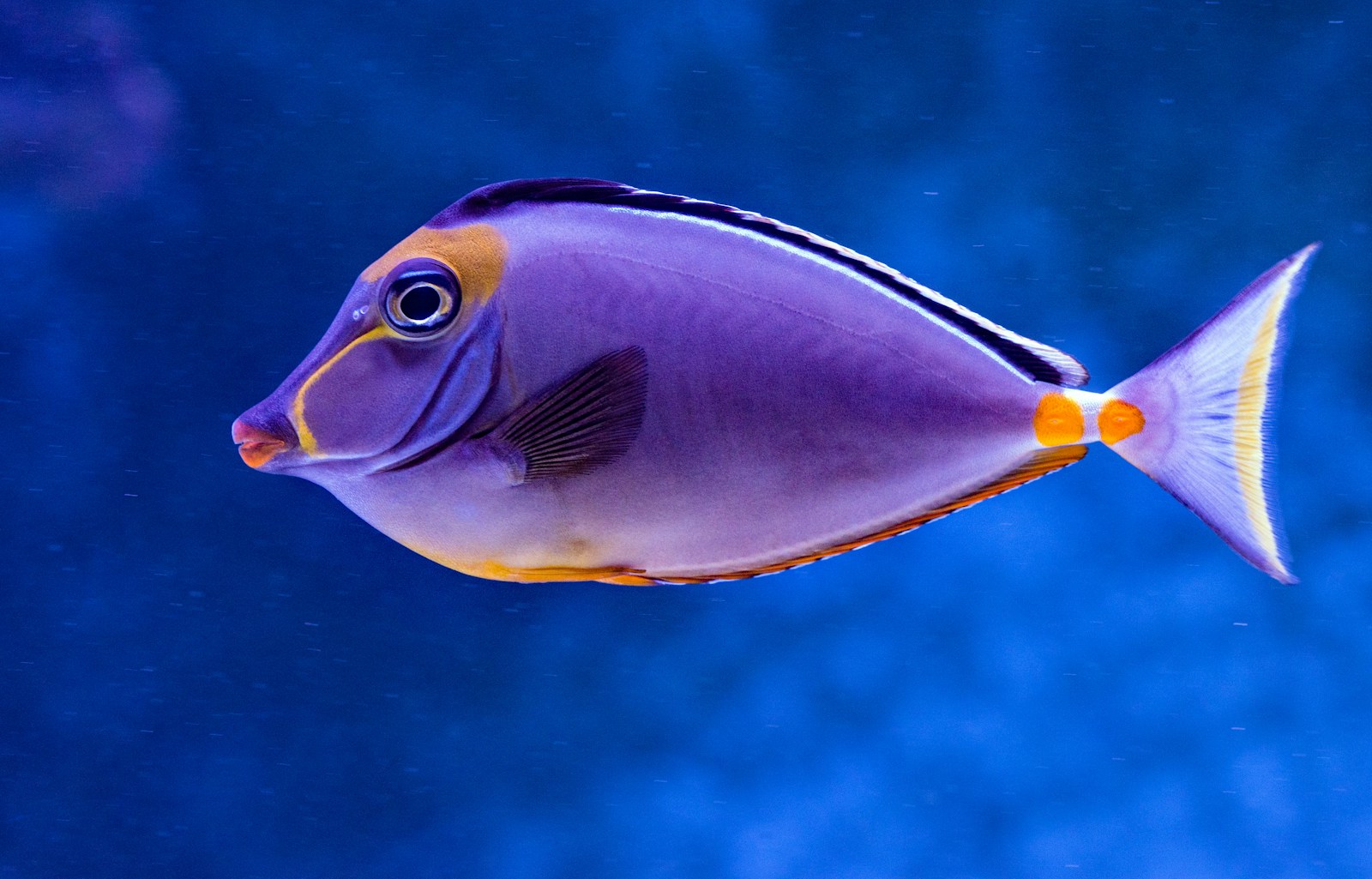
poisson

fish
The word 'poisson' in French is used similarly to the English 'fish'. You can use it to refer to the animals that live in water, the act of fishing, and also for the dish cooked with fish as an ingredient.
Example sentences using: poisson
J'ai mangé du poisson pour le dîner.

I ate fish for dinner.
This expression is used to specify what one had for a meal. 'J'ai mangé' means 'I ate', 'du' is a partitive article used for uncountable amounts, and 'pour le dîner' translates to 'for dinner'.
Le poisson est dans l'aquarium.

The fish is in the aquarium.
Here we are using 'est', which means 'is', and 'dans', meaning 'in', to indicate the location of something: 'l'aquarium', 'the aquarium'.
Je vais acheter du poisson au marché.

I'm going to buy fish at the market.
'Je vais acheter' translates to 'I'm going to buy', and 'au marché' means 'at the market'. 'Du' is again the partitive article, used with uncountable nouns.
Le chat aime le poisson.

The cat likes fish.
This is a basic sentence using the verb 'aime', which means 'likes'. 'Le chat' translates to 'the cat', and 'le' before 'poisson' signifies 'the' or a general quantity of 'fish'.
Le poisson est bon pour la santé.

Fish is good for health.
Here, 'est bon' means 'is good', and 'pour la santé' means 'for health'. This sentence refers to the health benefits of eating fish.
Poisson d'avril!

April fools!
'Poisson d'avril' is the French equivalent of 'April fools' and literally translates to 'April's fish'. It's a tradition in France to stick paper fish on people's back as a prank.
J'aime le goût du poisson.

I like the taste of fish.
'J'aime le goût du' translates to 'I like the taste of'. Here, 'du' is a contraction of 'de le', and it's used before masculine nouns that start with a consonant.
Le poisson nage dans l'eau.

The fish swims in the water.
In this sentence, 'nage' translates to 'swims' and 'dans l'eau' means 'in the water'. This express a natural behavior or state of a fish.
Le poisson est un animal aquatique.

Fish is an aquatic animal.
Here, 'est un' translates to 'is an' and 'animal aquatique' means 'aquatic animal'. This is a general description about what fish is.
Il pêche un gros poisson.

He's fishing a big fish.
'Il pêche' means 'he's fishing', and 'un gros' translates to 'a big'. The sentence describes someone who is fishing for a big fish.